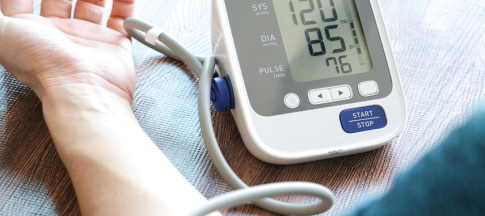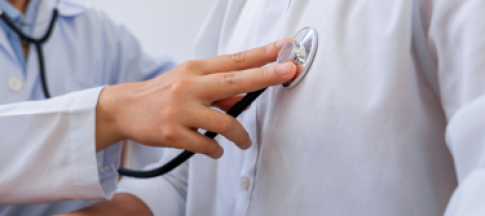
Getting back to normal after a stroke can be challenging. It can affect so many parts of your life, – even your adventures. But it shouldn’t stop you!
If you still want to travel, use our handy guide to get to grips with travelling after a stroke. Plus, how travel insurance works with this health condition.
Can I go on holiday after a stroke?
This depends on how long ago your stroke was and how much it affected you. It’s super important to talk to your medical professional about going on a trip after a stroke before you book anything.
If they say you can travel, make sure you follow any advice they give you to help keep you safe on your trip.
Can I get travel insurance after a stroke?
Yes, you can get travel insurance after having a stroke, but this depends on which insurer you choose. A stroke is usually considered as a pre-existing medical condition, so you need to mention it when buying your policy.
What should travel insurance for a stroke cover?
If you’re travelling after a stroke, it’s natural to feel worried about your health and what might happen if something goes wrong abroad.
Travel insurance can put your mind at ease, giving you a safety net if you get ill while you’re away.
If you need insurance for stroke-related medical issues, make sure your travel insurance covers:
- emergency medical costs
- getting you back to the UK if it’s medically needed
- any lost, stolen or damaged medication
- if you need to cancel or cut your trip short because of a stroke or stroke-related issue
Is a stroke a pre-existing medical condition?
Yes. Most insurers consider a stroke as a pre-existing medical condition. This means that you’ve had a stroke before you took out insurance.
We consider a pre-existing medical condition as an illness or injury that:
- has been identified by a medical professional
- is under investigation by a medical professional
- existed at any time before your policy starts or when you book a trip, whichever is later
Do I need to tell my insurer about my pre-existing medical condition?
Yes, it’s really important to tell your insurer about any pre-existing medical conditions you have.
If you don’t let them know, you might not be able to claim on your travel insurance if you get ill while you’re away.
Tips for travelling after a stroke
Before heading off on your next trip, make sure you’ve crossed these things off your list.
Talk to a medical professional
A medical professional can check if you’re fit to travel and talk to you about any health concerns before you go on your holiday.
They can give you tips and advice on travelling with your condition - don’t forget to jot these down!
Make sure you can take your medication with you
Some countries have stricter rules around taking certain medications with you when you travel. It’s important to check the country’s rules before you book anything.
Check out our guide on travelling with medication so you know the rules.
Think about your destination
Extreme weather – whether hot or cold – can affect people who’ve had a stroke. That’s because the body has to work harder to regulate its temperature.
Check the weather forecast for your destination. If it’s too hot or too cold – it might make you rethink where you want to go.
Think about what you plan to do on holiday too. Steer clear of heavy drinking and eating lots of salty foods, as this can cause higher blood pressure and your chance of having another stroke.
Can I fly after a stroke?
It’s best to chat with a medical professional before travelling on a plane after a stroke.
If a medical professional tells you that it’s okay to fly, make sure you’re prepared and ready to jet off safely, and if they have any medical advice.
Pack the essentials
Pack any medication you need for your journey in your carry-on luggage.
Tell the airline
Let the airline know about your condition or if you’re worried about suffering from any stroke-related issues on the plane.
Tell the airline before you fly about any medical equipment that can’t fit in your carry-on, so they can help you.
Can I use my GHIC or EHIC if I’ve had a stroke?
Yes. Your GHIC (Global Health Insurance Card) or EHIC (European Health Insurance Card) can give you free or cheaper emergency medical care when you’re abroad.
Not all countries accept the health card, so check the NHS webpage before you head off to see if you can use it.
It’s important to remember that the GHIC isn’t the same as travel insurance. It doesn’t apply everywhere and only works at some clinics.
It also doesn’t cover you for all costs, like cancelling your trip or bringing you back home.
Read our guide on GHIC cards, including where and when you can use them.
What to do if you get ill abroad
If it’s urgent, call the emergency services or go to the nearest hospital.
Call your insurer’s emergency service or helpline as soon as possible. If you’re with us and your medical costs are likely to be over £500, give us a call.
Our 24-hour emergency helpline number is +44 (0)292 010 777. Make sure you call us within 24 hours of your medical emergency.
MoneyHelper Directory
If we can’t cover your medical condition, you can use the MoneyHelper directory to find a specialist insurer who might be able to cover you if you’ve been:
- refused travel insurance or had your policy cancelled
- offered cover with a medical exclusion that you can’t remove from your policy
- quoted a price for a travel insurance policy with high medical costs
MoneyHelper makes it easier to find and compare policies you can afford that cover your condition and medical needs.
Access the MoneyHelper directory online or call MoneyHelper on 0800 138 7777 (phone lines are open Monday to Friday, 8:00am to 6:00pm, excluding bank holidays).


